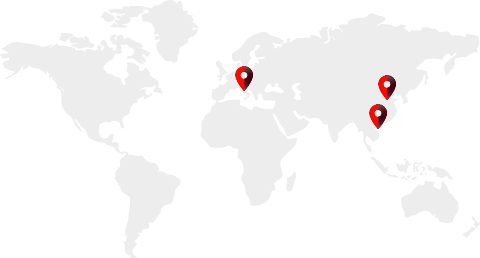Italy new silk road? Word to Ettore Minore
Ettore Minore at L’Unico: “The Silk Road is an opportunity for the whole of Europe. If we want the good of Italy, we must be ready to compete with everyone”.
by Pietro Fiocchi (source: L’Unico – Sovereign newspaper)
Ettore Minore, from Palermo, is one of the leading experts in Italy in trade with Asia, in particular China, where, due to his professional activity, he has been present for twenty years. He founded and directs companies that have offices in Rome, Hong Kong and Tianjin (half an hour by train from Beijing), carries out Italy-China projects at the highest level, ranging from training to electronics, from finance to infrastructure, without neglecting boating, Italy’s leading sector, and football. He is also the organizer and speaker of seminars and conferences on China today, on how to relate culturally and professionally with this gigantic enigma, as well as the author of five publications on taxation, business and investment in the banking sector, also in relation to China. Interviewed by L’Unico, Ettore Minore takes stock of an issue that is as current as it is fundamental: us and China, state of the art and opportunities in the making.
Is the “Italian system” ready to meet China on the New Silk Road? In my opinion we are still very late. The Silk Road is an opportunity not only for Italy, but for the whole of Europe. It is an opportunity to be exploited. The “Italian System” is late because we have not created a system, because the trade associations have moved sparingly and late, because we have never had political reference points, because we have made sure that competitors at commercial and industrial over the years. We were China’s first partner in the early 1970s, now we are the twenty-seventh. There is a lot to do and a lot to understand about China because today our potential is still unexpressed in terms of relations with China from a commercial, industrial and financial point of view. The New Silk Road is an opportunity because it allows for an even closer relationship, but various aspects of the relationship with China must be analyzed. When Chinese President Xi Jinping recently came to Italy, the question of what companies suffer in the Chinese customs system was not touched at all, which is very confusing, biased and often incurs very heavy financial expenses and not justifiable.
From the Italy-China Memorandum onwards, what strategies should our country pursue to build a concretely advantageous cooperation?
A communication and marketing strategy for our products, which is absolutely missing.
The institutional agencies in charge of this are not entirely reliable from a commercial and industrial point of view. We entrepreneurs who operate in China, we are more than 5,000, we suffer from the lack of someone who, at a political but also a managerial level, allows us to make that leap in quality compared to European competitors. Cooperation could arise from this communication and marketing strategy but also from a political strategy, for example by defining agreements with China regarding the penetration of Italian products in China and Chinese products in Italy. The customs system is in the first place of this aspect, because we have a deficit towards them that must be filled. By bridging this deficit, very efficient cooperation can be established, which even now, the ones that are successful, are exclusively due to the entrepreneurs who are often left alone.
In this new and growing geo-economic framework, what are Italy’s strengths? The strength of Italy is manufacturing. Italy is still known today as a highly reliable producer from a technical point of view, of excellent quality, with exceptional know-how. I do not see other strengths of Italy, also because politically we are very unstable, because financially we do not support certain types of penetration of the Chinese market.
Above all, we do not support companies that truly do business in China. If we think about what happened with the bankruptcy of Piazza Italia in Beijing in 2008 and considering that Italian companies working in China are not financed, then we understand that there is a dichotomy between how to manage a loan politically and how to manage it at the level managerial. We still manage it politically. We are unable to identify those companies that can make a qualitative leap, both for Made in Italy and for market penetration. For Italy, what could be the long-term criticalities of ever greater integration into the New Silk Road? The delay in the infrastructure. We are starting with a huge handicap in infrastructure. While all the countries have adapted with ports, with latest generation logistic centers, with efficient managerial management. We have a lack of infrastructures, as with the roads connected to the ports. The classic example is Genoa. In Genoa, with the collapse of a bridge, the work of the port was clearly cut off. This is inconceivable in a modern organization of logistics, transport and strategic combination. Italian governments in the face of China: between exaggerated mistrust and, perhaps, too much optimism.
What attitude should the executive of our country have to positively address the current economic, political and cultural macrodynamics?
The Italian governments in front of China have shown themselves in a different way but at the same time in a not mature way as regards politics. We pass from a Berlusconi, who has made an open war on China, also for personal reasons. Let’s move on to the Left, which has criticized China for human rights. Let’s go through the Center, which has criticized China for opposing the United States and we are allies of the United States. I simply say one thing: Italy is a sovereign country and as such it should serve the interests of its people and businesses. As for China, which is now a country with a very strong human, industrial and financial capital, Italy must think above all about the well-being of its companies and cannot go after its allies, except for political choices or other types of ideology hinder this.
Is it possible to do this concretely? If Italy loves Italy, yes.
Nobody takes away our culture and our roots, but we must also look at what globalization is. Globalization has allowed Made in Italy to develop in the world. This was a very positive factor for both the workers and the Italian companies. Now we have to take a much broader cultural step, which is to be able to do business with the East and the West to the same extent and by relating with everyone with the utmost respect for their culture, but also by making ourselves respected. The fact that many times from overseas we are told that we cannot operate with Russia, with China because there are embargoes, is very limiting and is not respectful towards us. Other countries do the same in business without having all these dichotomies. The Italian problem always remains the same, it is a political problem. We need to get it into our heads that if we love Italy, if we want to do the good of Italy, we must be able to compete with everyone and have relationships with everyone.


